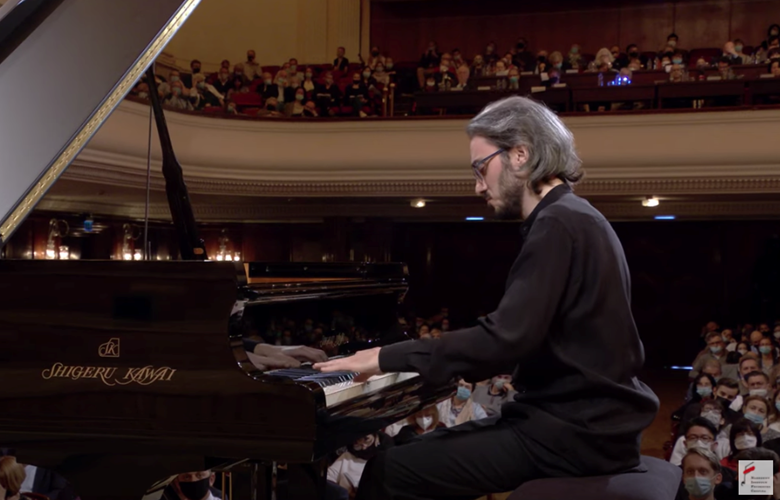The Chopin Piano Competition, day six: a look at the repertoire
Jed Distler
Saturday, October 9, 2021
The judges name the competitors through to the next round

Last night the jury selected 45 contestants who will proceed on to Chopin Competition’s second stage rounds. The list includes several pianists that I’d singled out for praise, although three of my favourite candidates didn’t make the final cut.
Since we have a quiet day, I thought I would digress on the topic of repertoire. Viewers weighing on the live stream chat often complain that the same pieces are played over and over again. However, strict repertoire guidelines govern each of the competition’s four stages. Let’s break these down.
Stage one’s requirements include the following: candidates must choose one from each of two groups of Études and perform these back-to-back. They then pick one piece from a roster of nine Nocturnes and three relatively slow, lyrical and nocturne-like Études, and finally a large-scale piece chosen from the four Scherzos, the four Ballades, the F minor Fantasy and the Barcarolle.
These selections encompass the full range of Chopin’s technical and expressive palette, and as such reveal a great deal about a pianist’s strengths and weaknesses. The candidates inevitably gravitate towards certain pieces more than others. The Fourth Ballade, for example, is a clear favourite as it’s an ideal vehicle to show off one’s virtuosity and intellectual powers. Few pianists have opted for the Second Ballade, perhaps because of its quiet ending.
Stage two requires each candidate to present 30 to 40 minutes of music. Again, the pianists choose a large-scale item: either a Ballade, a Scherzo (although not if they played a Scherzo in the first round), the F minor Fantasy, the Barcarolle, or the Polonaise-Fantasie. Next, they choose one of five possible Waltzes. Finally, they select either the Andante Spianato and Grande Polonaise Op 22, the Polonaise in F sharp minor Op 44, the A flat Polonaise Op 53, or the two Op 26 Polonaises to be played together in order.
This 30- to 40-minute framework adds up to half of a typical recital programme, and demands more from the performer in terms of pacing and stamina. The addition of Waltzes and Polonaises to the mix further tests the pianists’ idiomatic scope. Should the chosen repertoire fall short of the minimum performing time limit, any other piece or pieces by Chopin can be added.
For stage three, the semi-finals, candidates have between 45 and 55 minutes to play a full set of Mazurkas from a range of opuses, along with a choice of the Sonata No 2 in B flat minor, the Sonata No 3 in B minor, or the complete Preludes Op 28.
The six pianists who make the final round select one of Chopin’s two concertos to play with orchestra. Many pianists choose the First Concerto in E minor, since it is the more difficult of the two from a technical standpoint. Yet I’ve always preferred the F minor Second Concerto from a musical point of view, especially its achingly lyrical and anguished slow movement.
It will be interesting to see how pianists with extra time fill out their segments. Not too long ago, the rarely played Rondos started sneaking into the advanced rounds. Did anyone ever toss in the Bolero, for that matter? Or the Herold Variations Op 12, or the much maligned Allegro de Concert Op 46? Readers, fill me in!
Gramophone is a Media Partner of the 18th Chopin Piano Competition - you can follow the competition by watching the live stream at the chopin2020.pl - and visit us every day for more analysis from Jed Distler.











